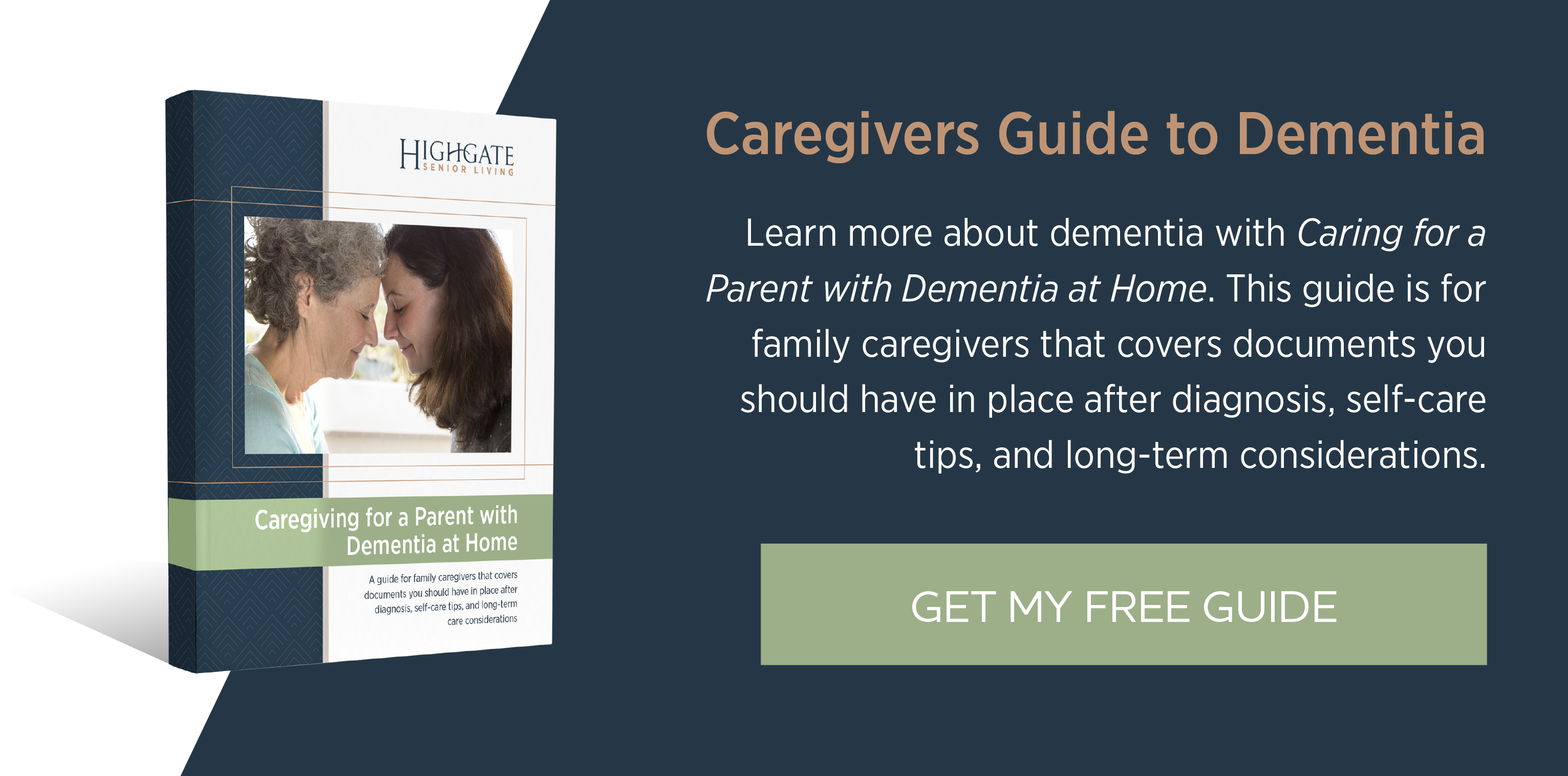
Most of us look forward to the end of the day. It's time for family dinners, bedtime stories, a glass of wine with your spouse, or a good book.
The end of the day for many elderly adults with dementia, and their caregivers brings anything but rest and relaxation. In the late afternoon and into the night, some of those with dementia suffer a symptom called sundowners. They may get confused, sad, restless, anxious, fearful, angry, paranoid, or agitated. They may express these emotions through pacing, yelling, crying, hallucinating, lashing out, or wandering off. For their loved ones, this can be unnerving and frightening.
While we don't know the cause, we do know there are triggers that heighten the symptoms. Here are nine ways that can help make the end of the day less stressful for you and your loved one with dementia.
1. Identify Triggers
While there are several universal triggers, your loved one will have their own particular triggers. Identifying them is one of the most helpful things you can do. To do this, observe and track when and what they eat, their activity, and their behavior. Your record will help you zero in on their specific triggers.
For some, television or radio late in the day may be upsetting. For others, a heavy midday meal may spell trouble. When you know what your loved one’s triggers are, you can avoid them. Or at the very least, know what to expect.
2. Routine
Your loved one with dementia can get easily confused on their best days. Dementia makes it hard to remember new routines, so switching a schedule is confusing and stressful. Keeping to a routine will make them feel more calm and secure.
Routine means bedtime, too. If your loved one is having trouble getting or staying asleep, try to avoid napping. There have been studies that tie sundowners to our internal clocks (circadian rhythms) so upsetting sleep patterns may aggravate your loved one’s symptoms.
3. Light Therapy
According to a research review in Psychiatry Investigation, light therapy can improve sundowning symptoms. Use a full-spectrum lamp or light box in the morning so that it has maximum effect during the day and doesn't interfere with your loved one’s sleep at night.
Light can also be an on-the-spot aid when your loved one is agitated or confused. Making a room brighter has a calming effect. It also reduces shadows which can be disturbing or alarming.
4. Music
Music can be an extremely helpful, enjoyable, and soothing distraction. Singing is a great way to divert their attention from whatever negative emotions they’re experiencing. Ask them to sing with you or just start singing their favorite song, a hymn, or a kids’ song. If they’re singing with you, they can’t focus on what is bothering them.
If they don't enjoy singing, or it doesn’t work, try calm piano music or nature sounds. These soothing sounds can also help your loved one get to and stay asleep.
5. Distractions
When your loved one is distressed, something loved and familiar can serve as a great distraction. Do they have a pet they could take for a walk? A garden they could show you? (Ask them to point out what just bloomed or is about to sprout.) Do they love telling stories? Ask them to tell you a story they love to tell.
6. Aromatherapy
Using essential oils - those extracted from plants - can have a powerful effect on emotions. For example, diffusing or spraying diluted lavender and rose into a room can calm your loved one. Everyone has their preferences, however, so be sure to see how your loved one responds.
7. Massage
A hand or foot massage is welcome by just about anyone. Massage relaxes tense muscles and reduces stress. Slow, gentle strokes distract from anxious and fearful thoughts that are part of sundowners. It can also help reduce pain and soothe tense muscles.
8. Communication
When your loved one is upset and acting out, it’s easy to meet them emotion for emotion. As tough as it can be, try to be patient. Speak slowly and clearly and tell them what you want them to do. (It’s much easier for them to remember “do this” than “don’t do that.”)
9. Self-Care
Caring for someone with sundowners can be exhausting. It makes it even more important that you take care of yourself and ask for help when you need it. There's nothing selfish about taking care of yourself. You'll be more capable of caring for your loved one, giving them the love and support they need.
Remember to have patience with yourself and your loved one with dementia during the difficult hours after the sunset.






